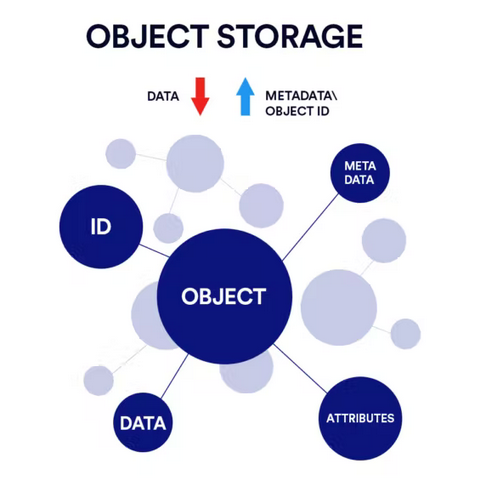
Object storage is a revolutionary type of data storage that is specifically designed to store large amounts of unstructured data, such as photos, videos, and audio files. One of the key features that sets object storage apart is the ability to store metadata along with each object. In this post, we'll delve into the world of object storage metadata, discussing how it is used and the impact of slow metadata performance on an object storage system.
What is object storage metadata?
Object storage metadata is a powerful tool that allows users to store information about their objects in an object storage system. This metadata can include details such as the object's name, size, content type, and creation date, as well as custom metadata that is specific to the user's needs. By using metadata, users can easily organize and manage their objects within the object storage system.
How is object storage metadata used?
Object metadata is stored in key-value pairs, with the key being the name of the metadata field and the value being the information stored in that field. This metadata can be used by the object storage system to group objects by content type, search for objects based on specific metadata values, and much more. The possibilities for using metadata are virtually limitless, making it a powerful tool for managing and organizing objects within the object storage system.
What is the impact of slow metadata performance on an object storage system?
Slow metadata performance can have serious consequences for an object storage system. It can make it difficult for users to access and retrieve their objects, leading to delays and frustration. In addition, slow metadata performance can negatively impact the overall performance of the object storage system, potentially causing slower performance and even downtime. If the system is unable to efficiently manage and organize the objects within it, it may become more difficult to add new objects or scale the system to meet increasing demand.

Experience Enhanced S3 Object Performance with NGX Storage
NGX Storage provides ultimate object storage solution, designed to optimize performance and scalability. With our innovative flash tier technology, all object metadata is stored on ultra-fast solid-state memory chips, ensuring lightning-fast access and retrieval times. As your system grows, our scalable design allows you to easily add more flash storage with just a single click. Plus, our advanced tree copy wide stripe flash environment provides unparalleled durability and fault tolerance for your valuable metadata and data.
There are many reasons why it is beneficial to keep metadata at a very fast flash layer and data itself on high capacity, economic drives. First and foremost, this arrangement can greatly improve the performance of a system. Additionally, this approach can help to save costs. Using high capacity, economic drives for data storage is often more cost-effective than using faster, but more expensive drives for all data storage. Another advantage of this setup is the increased capacity it can provide. High capacity drives allow for more data to be stored, which can be especially useful for those who have a large amount of data to store.
Additionally, NGX Storage inline compression can reduce all data and metada to provide more efficient capacities. Compressing metadata and data can offer a number of benefits for both the storage system itself and the users of the system. Here are a few ways that compressed metadata and data can improve the overall experience of using an object storage system:
- Faster access to objects: Smaller metadata and data means faster processing, which can translate into faster access to objects stored in the system. This can be especially beneficial for users who need to retrieve large numbers of objects or frequently access the same objects.
- Improved system performance: By reducing the amount of metadata that needs to be processed, compressed metadata can help to improve the overall performance of the storage system. This can result in faster access times and a better overall user experience.
- Lower storage costs: Because compressed metadata and data takes up less space, it can help to reduce the overall storage requirements of the system. This can result in lower storage costs for the organization or individual using the object storage system.
- Enhanced reliability: Compressing metadata and data can also make it more efficient to replicate and back up, which can improve the overall reliability and durability of the storage system. This can give users greater confidence in the security and availability of their data.
As NGX Storage, we are always looking for ways to improve the performance and efficiency of our systems for our customers. To learn more you can reach us.


